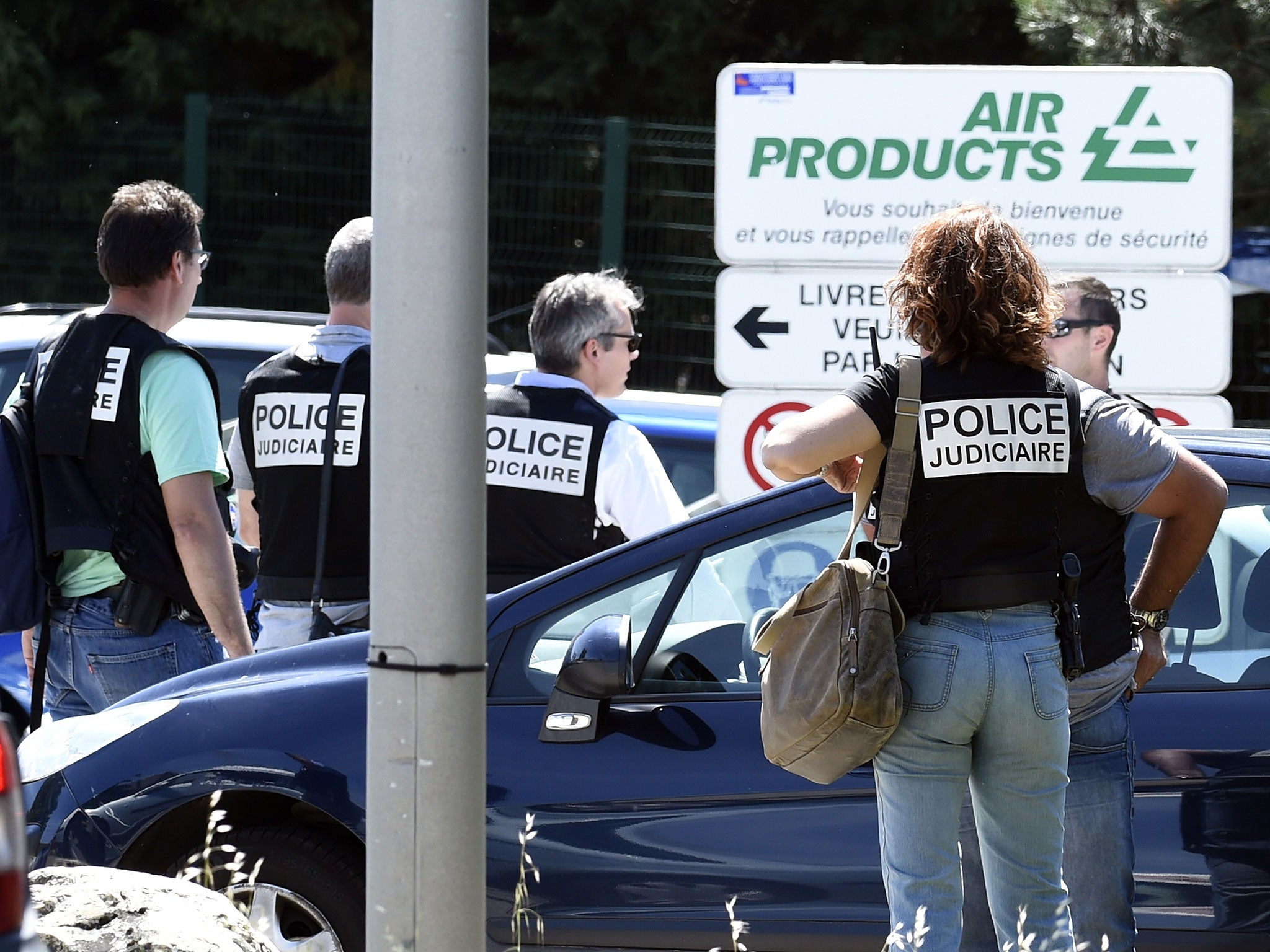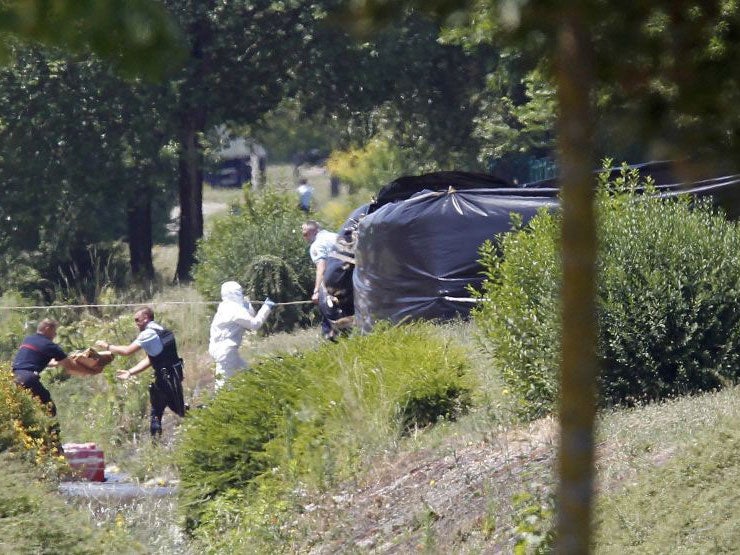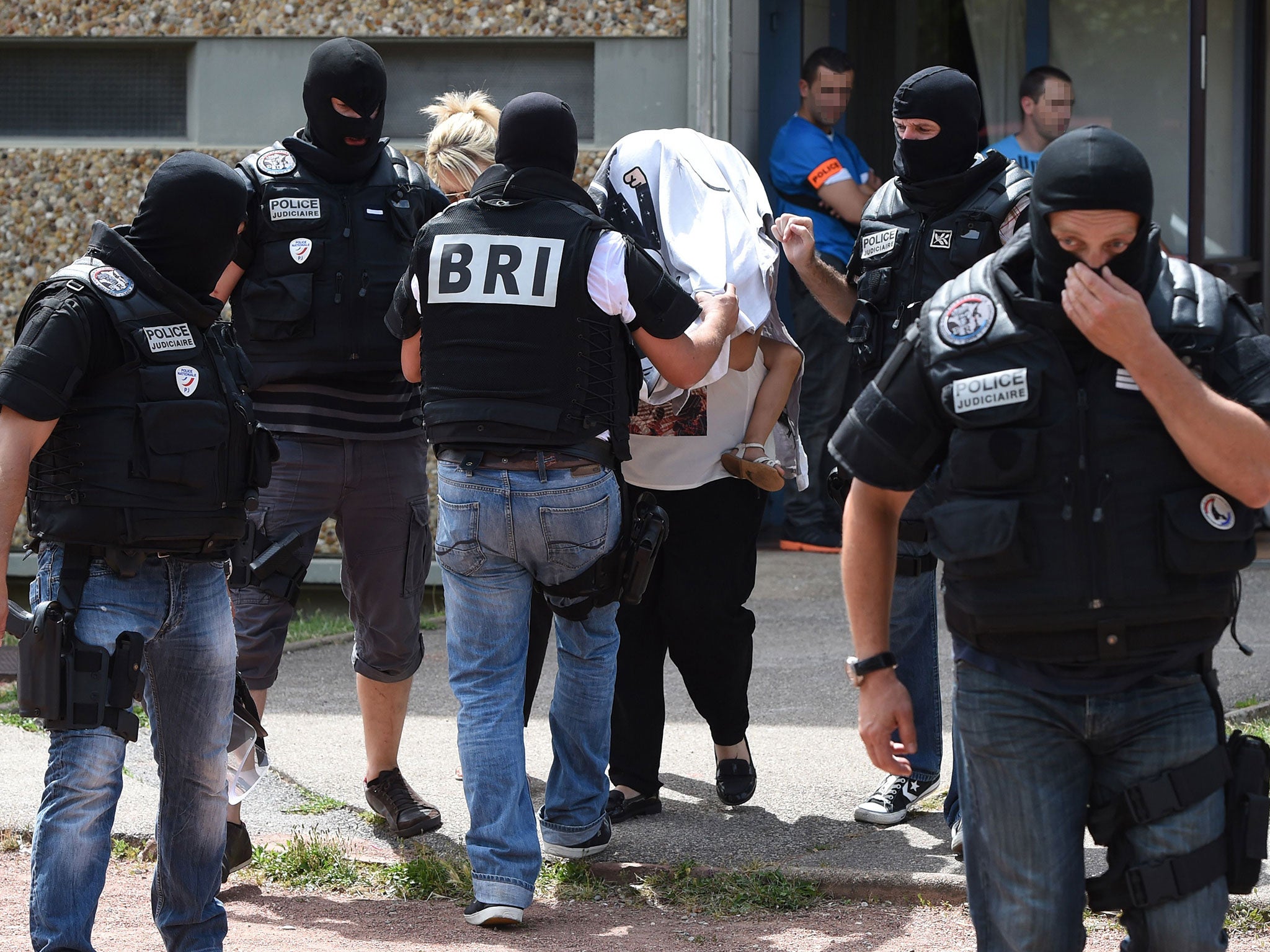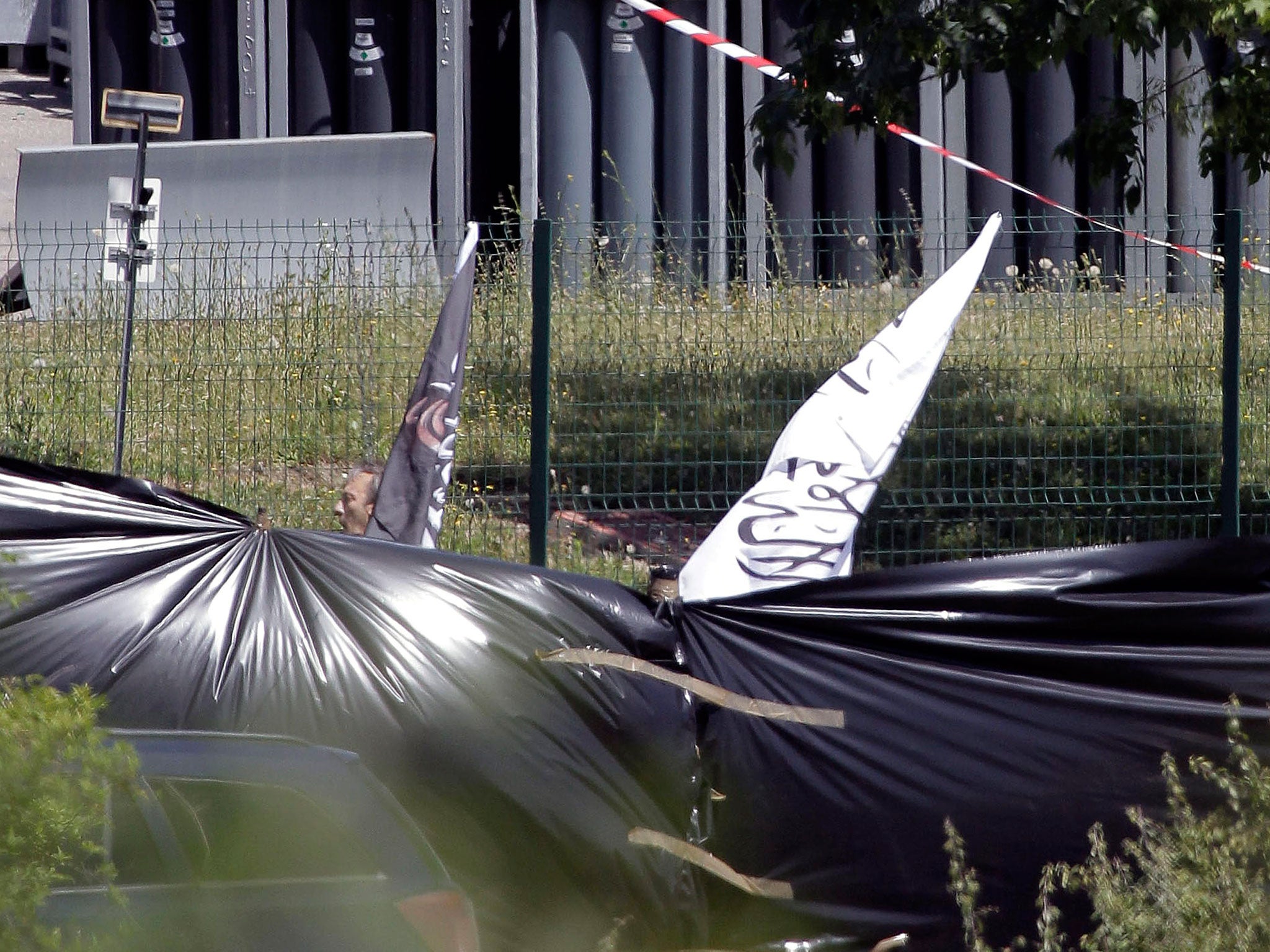'Isis' beheading: Islamist decapitates boss and tries to blow up factory near Lyon
A suspect has been arrested after the attack in Saint-Quentin-Fallavier

Your support helps us to tell the story
From reproductive rights to climate change to Big Tech, The Independent is on the ground when the story is developing. Whether it's investigating the financials of Elon Musk's pro-Trump PAC or producing our latest documentary, 'The A Word', which shines a light on the American women fighting for reproductive rights, we know how important it is to parse out the facts from the messaging.
At such a critical moment in US history, we need reporters on the ground. Your donation allows us to keep sending journalists to speak to both sides of the story.
The Independent is trusted by Americans across the entire political spectrum. And unlike many other quality news outlets, we choose not to lock Americans out of our reporting and analysis with paywalls. We believe quality journalism should be available to everyone, paid for by those who can afford it.
Your support makes all the difference.An Islamist terrorist tied his boss’s severed head to a fence before making a failed ram raid on a chemical factory near Lyon on Friday.
Investigators believe the attack was intended to take scores of lives.
Images caught on security cameras of the attacker placing the head on the factory fence before the attack have shocked France. The head was wrapped in an Isis banner carrying a message in Arabic.
The victim was the 45-year-old manager of a local transport company, which had permission to enter the heavily protected site. The attacker was one of his drivers, Yassin Salhi, 35, a French-born father of three.

The rest of the manager’s body was found after the attack outside the Air Products factory at Saint-Quentin-Fallavier, in the outer south-east suburbs of Lyon.
Security camera tapes showed his employee – who had previously been identified by French authorities as an Islamist – attaching his boss’s head to a chain-link fence in what investigators described as a “macabre piece of theatre”.
Salhi then climbed back into the company truck and entered the factory compound in the normal way. Once inside the site, he drove at high speed into a pile of gas-canisters, apparently intending to cause a huge explosion.
Luckily, the resulting blast was relatively small. Two factory employees were injured. Salhi survived with a minor head injury.

After the blast he ran into one of the factory buildings to try to tamper with other gas canisters. When fire fighters arrived he shouted “Allahou Akbar” (God is the greatest) before he was overpowered.
Although less disastrous than it might have been – and overshadowed by the killings in Tunisia – the attack sent shock waves through France less than six months after the jihadist murders and attack on Charlie Hebdo in Paris in January.
President François Hollande left the EU summit in Brussels to chair a crisis meeting of his defence council in Paris. He appealed for calm in the face of the continuing jihadist threat. It was vital, he said, that the country did not give way to “fear” and “useless divisions and intolerable suspicions”.
Patrick Mennucci, a Socialist MP and expert on jihadist networks, said: “France is at war. We have in our territory individuals who do not obey the laws of the Republic, only the fatwas of the Islamic State.”
Police also arrested a suspected accomplice, who was seen driving up and down the road near the factory on Friday morning. They also took into custody Salhi’s wife and another woman at his flat.
Before she was taken into custody – possibly for her own protection – Salhi’s wife expressed her disbelief at his alleged actions.
“What’s happening here? My heart is going to break. It can’t be him,” she said. “We are a normal family with children. We live normally.”

Asked if her husband was religious, she said: “Yes, we are Muslims. But in a normal way. We respect Ramadan. No more than that.”
It is understood that Salhi had previously been under surveillance by the French security services for alleged involvement with Salafist Islamic radicals, but was taken off the watch list after two years.
Investigators believe that the Air Products factory was targeted because it was US-owned and was assumed to contain highly explosive chemicals. The factory was on an official list of hazardous industrial sites but was considered a relatively “low” level of risk. It dealt with chemicals for agriculture, which were not highly combustible.
Investigators believe that those who planned the raid assumed that the whole factory would explode, killing the 40 employees on the site and people in offices and factories nearby.
The placing of a severed head on the factory’s fence appeared to be deliberately provocative reference to the Isis practice of beheading enemies.
French politicians spoke of their outrage that decapitation as an instrument of terror had been imported to Europe.
Surveillance failures
Awkward questions once again face French internal security chiefs after the attack.
The Interior Minister, Bernard Cazeneuve, said Yassin Salhi, the suspect arrested at the scene, had been under surveillance as a follower of the radical Salafist interpretation of Islam. His activities and phone calls were monitored from 2006 to 2008, when the alert was lifted.
Similar revelations were made after the jihadist attacks on Charlie Hebdo magazine and a kosher supermarket in Paris in January. One of the Kouachi brothers who attacked Charlie Hebdo, killing 12, had been under surveillance until the previous autumn. Mohamed Merah, the “scooter killer” who murdered seven people in the Toulouse area in 2012, had been interviewed by counter-terrorism agents.
Yassin Salhi was born in Doubs in eastern France in March 1980. He lived in Saint Priest, a suburb of Lyon 20 miles from the attack, with his wife and three children.
Join our commenting forum
Join thought-provoking conversations, follow other Independent readers and see their replies
Comments